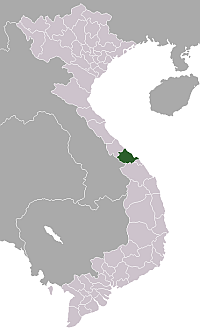Portal:History
The History Portal
History (derived from Ancient Greek ἱστορία (historía) 'inquiry; knowledge acquired by investigation') is the systematic study and documentation of human past. History is an academic discipline which uses a narrative to describe, examine, question, and analyze past events, and investigate their patterns of cause and effect. Historians debate which narrative best explains an event, as well as the significance of different causes and effects. Historians debate the nature of history as an end in itself, and its usefulness in giving perspective on the problems of the present.
The period of events before the invention of writing systems is considered prehistory. "History" is an umbrella term comprising past events as well as the memory, discovery, collection, organization, presentation, and interpretation of these events. Historians seek knowledge of the past using historical sources such as written documents, oral accounts or traditional oral histories, art and material artifacts, and ecological markers. History is incomplete and still has debatable mysteries.
Stories common to a particular culture, but not supported by external sources (such as the tales surrounding King Arthur), are usually classified as cultural heritage or legends. History differs from myth in that it is supported by verifiable evidence. However, ancient cultural influences have helped create variant interpretations of the nature of history, which have evolved over the centuries and continue to change today. The modern study of history is wide-ranging, and includes the study of specific regions and certain topical or thematic elements of historical investigation. History is taught as a part of primary and secondary education, and the academic study of history is a major discipline in universities.
Herodotus, a 5th-century BCE Greek historian, is often considered the "father of history", as one of the first historians in the Western tradition, though he has been criticized as the "father of lies". Along with his contemporary Thucydides, he helped form the foundations for the modern study of past events and societies. Their works continue to be read today, and the gap between the culture-focused Herodotus and the military-focused Thucydides remains a point of contention or approach in modern historical writing. In East Asia a state chronicle, the Spring and Autumn Annals, was reputed to date from as early as 722 BCE, though only 2nd-century BCE texts have survived. The title "father of history" has also been attributed, in their respective societies, to Sima Qian and Ibn Khaldun. (Full article...)
Featured picture
Did you know (auto generated)

- ... that the history of philosophy in India is characterized by its combined interest in the nature of reality, the ways of arriving at knowledge, and the spiritual question of how to reach enlightenment?
- ... that Clement Crisp, a dance critic for the Financial Times from 1956 to 2020, authored or co-authored 17 books on dance and dance history?
- ... that What Hath God Wrought, the 2007 history of Jacksonian America written by Daniel Walker Howe, is dedicated to Andrew Jackson's "political nemesis" John Quincy Adams?
- ... that "Spotlight", the best-selling digital single in Chinese music history, saw its Douban rating drop from 10.0 to 3.2 less than two days after its release?
- ... that history sniffing has been used to track Papa John's customers?
- ... that visitors to Balmaclellan in Scotland can stay in a historic watermill that is "remarkable" for the preservation of its internal workings?
Major-General Sir Isaac Brock KB (6 October 1769 – 13 October 1812) was a British Army officer and colonial administrator from Guernsey. Brock was assigned to Lower Canada in 1802. Despite facing desertions and near-mutinies, he commanded his regiment in Upper Canada (part of present-day Ontario) successfully for many years. He was promoted to major general, and became responsible for defending Upper Canada against the United States. While many in Canada and Britain believed war could be averted, Brock began to ready the army and militia for what was to come. When the War of 1812 broke out, the populace was prepared, and quick victories at Fort Mackinac and Detroit defeated American invasion efforts.
Brock's actions, particularly his success at Detroit, earned him accolades including a knighthood in the Order of the Bath and the sobriquet "The Hero of Upper Canada". His name is often linked with that of the Native American leader Tecumseh, although the two men collaborated in person only for a few days. Brock died at the Battle of Queenston Heights, which the British won. (Full article...)On this day
- 1258 – George Mouzalon, the regent of the Empire of Nicaea, was assassinated as part of a conspiracy led by nobles under the future emperor Michael VIII Palaiologos.
- 1758 – Seven Years' War: Prussian forces engaged the Russians at the Battle of Zorndorf in present-day Sarbinowo, Poland.
- 1914 – World War I: During the sack of Louvain in Belgium, German troops burned the town's Catholic university, destroying several medieval manuscripts.
- 1989 – The NASA spacecraft Voyager 2 made its closest approach to Neptune and provided definitive proof of the existence of the planet's rings (pictured).
- 2011 – Mexican drug war: Fifty-two people were killed in an arson attack at a casino in Monterrey, Mexico.
- Velma Caldwell Melville (d. 1924)
- Babe Siebert (d. 1939)
- Theresa Andrews (b. 1962)
- Ray Jones (d. 2007)
Selected quote
Even as the fingers of the two hands are equal, so are human beings equal to one another. No one has any right, nor any preference to claim over another. You are brothers.
— Muhammad, 7th century Islamic prophet
Related portals
More Did you know...
- ... that the Japanese aircraft carrier Amagi (wreck pictured) capsized on 29 July 1945 as a result of cumulative damage inflicted by American airstrikes on 24 and 28 July?
- ... that Scandinavian influence in Scotland, still evident today, was probably at its height during the time of Thorfinn the Mighty?
- ... that, after the 2003 invasion of Iraq, the Bassetki statue, which is more than 4,200 years old, was found in a cesspool?
- ... that in medieval art, angels were often depicted wearing feather tights?
- ... that 49% of German military losses happened in the last 10 months of the Second World War in Europe?
- ... that Joshua L. Goldberg, the first rabbi to serve as a World War II U.S. navy chaplain, was a Russian army deserter?
- ... that Richard Nixon chose the Wilson desk as his Oval Office desk because he believed it was used by Woodrow Wilson, informed that it was used by Henry Wilson, Vice President under Ulysses S. Grant, but actually bought by Garret Augustus Hobart, 24th Vice President of the United States under President William McKinley?
- ... that some of the nominally silver Roman coins from the Bredon Hill Hoard only have a 1% silver content?
Topics
Categories

History • By period • By region • By topic • By ethnic group • Historiography • Archaeology • Books • Maps • Images • Magazines • Organizations • Fictional • Museums • Pseudohistory • Stubs • Timelines • Chronology • People • Wikipedia historians
WikiProjects
![]() WikiProject History •
Ancient Near East • Australian History • Classical Greece and Rome • Dacia • Former countries • History of Canada • Chinese history • European history • Heraldry and vexillology • Indian history • Jewish history • Medieval Scotland • Mesoamerica • Military history • Middle Ages • History of Science
WikiProject History •
Ancient Near East • Australian History • Classical Greece and Rome • Dacia • Former countries • History of Canada • Chinese history • European history • Heraldry and vexillology • Indian history • Jewish history • Medieval Scotland • Mesoamerica • Military history • Middle Ages • History of Science
WikiProject Time • Days of the Year • Years
WikiProject Biography • Composers • Political figures • Saints • United States Presidents
Things you can do
 |
Here are some tasks awaiting attention:
|
Associated Wikimedia
The following Wikimedia Foundation sister projects provide more on this subject:
-
Commons
Free media repository -
Wikibooks
Free textbooks and manuals -
Wikidata
Free knowledge base -
Wikinews
Free-content news -
Wikiquote
Collection of quotations -
Wikisource
Free-content library -
Wikiversity
Free learning tools -
Wiktionary
Dictionary and thesaurus






















































